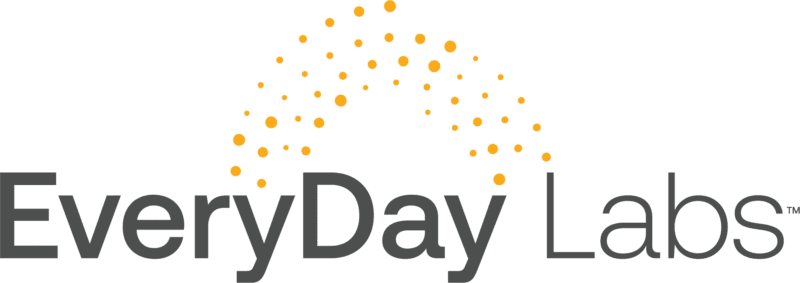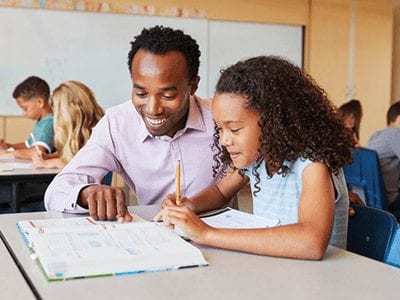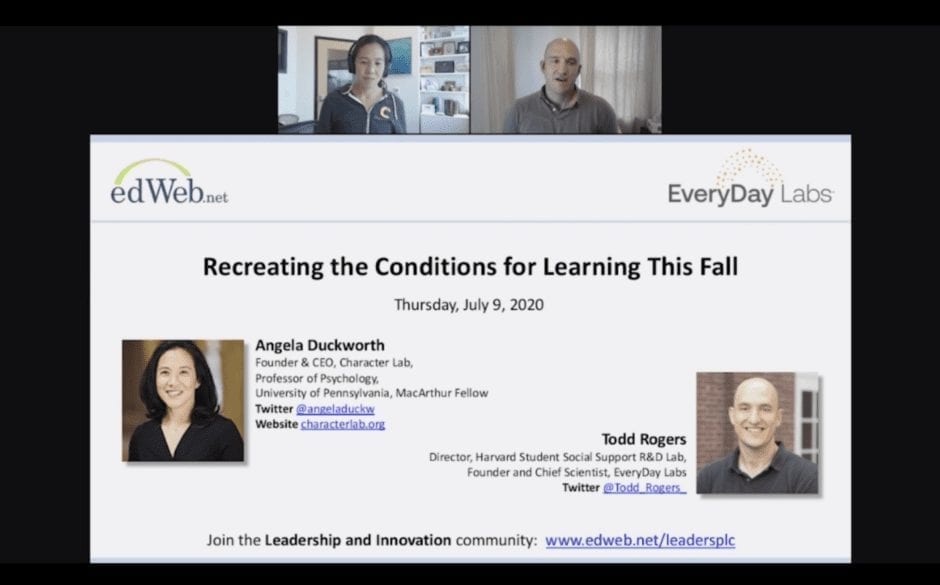Creating Conditions for Learning When the School Year Begins
By Robert Low
WATCH THE EDLEADER PANEL RECORDING
While reopening plans for many school districts remain uncertain, a growing number of districts are planning to open remotely or use a hybrid model in which only some students are in an actual school building each day.
Optimizing student learning under these circumstances is likely to be difficult, but a recent edLeader Panel, sponsored by EveryDay Labs, identified potential solutions and featured a discussion between Angela Duckworth, Founder and CEO of Character Lab and a professor at the University of Pennsylvania, and Todd Rogers, Chief Scientist at EveryDay Labs and Director of Harvard’s Student Social Support R&D Lab.
Angela emphasized the importance of combining science with the insights, ongoing experiences, and creativity of classroom teachers, because so much remains unknown about creating conditions for effective learning in remote and hybrid situations. Also, the differences between individual students, various age groups, and types of schools make it difficult to make sweeping statements that can be applied in every situation.
Socialization to Support Learning
Meaningful contact with children of their own age is widely recognized as an important condition of learning, and so is the personal role teachers play in their students’ learning each year. The friendships and familiarity that had already been established this past spring made it easier to switch to remote learning, and building new relationships will be equally important for effective learning in the fall, but potentially far more challenging in remote or hybrid situations.
The use of “icebreakers” that encourage social interaction and help students get to know one another can be effective, but only if they are used on an ongoing basis rather just once and then abandoned. There also needs to be opportunities for students to interact on a one-to-one basis with each other, which can be done via Zoom through the use of breakout rooms. Part of the process should be starting paired sessions with a few minutes dedicated to letting the students get to know one another or interact informally so they can then better focus on their learning tasks.
Teachers also need to be intentional in how they pair students and support the socialization process in order for it to be effective. This can include teaching questioning strategies and modeling them, identifying appropriate topics of conversation, and making sure that students who are shy or more likely to be excluded receive the help they need to interact successfully.
Creating Conditions for Remote Learning
The importance of being intentional also applies to creating the rituals and routines that result in successful learning during remote or hybrid classes. Belonging is a fundamental human need, so being part of a group that feels safe will enable students to devote more time and attention to learning. Students also need to feel recognized and understood, and with that in mind, Angela mentioned one educator who would talk with students about their favorite types of music and songs, and then play their favorites at appropriate times “to make everyone feel part of the micro culture.”
Angela also recommended that teachers help students establish their own routines and rituals that support their individual learning process. Being in a school building with established norms and procedures supports group learning, and students working at home should be encouraged to create conditions in which they can be more productive. This can include things like not having cell phones on during class, but also “hack your space” activities in which students come up with ways to make their home learning environment as supportive as possible.
Building metacognition or self-awareness is another way to help students improve their remote learning so they better understand how to learn and can comprehend the subject matter more easily. Curiosity has been found to increase learning and remembering, so helping students identify what they are curious about and then doing research on the subject can lead to significant learning gains. There also can be a “meta minute” at the end of some classes, when students discuss activities that interfere with learning, such as “how did I procrastinate this week and why,” with the understanding that awareness is not sufficient and needs to result in actual progress.
Noting that uncertainty is difficult and can be distracting, Angela and Todd suggested not only sharing plans for teaching and learning, but also contingency plans so that students know in advance what will happen if a student or teacher falls ill, or how to handle other situations that may arise due to the pandemic’s impact on educational facilities and processes.
Angela acknowledged that teaching a subject, helping students feel safe in the midst of a pandemic, becoming a maestro of audio-visual technology, and breaking new ground on how students connect with each other is a “tall order,” but she believes that with scientific support teachers can apply their understanding of human nature and individual students in ways that will sustain and even increase learning.
This edWeb broadcast was sponsored by EveryDay Labs.
WATCH THE EDLEADER PANEL RECORDING
About the Presenters
Angela Duckworth is the founder and CEO of Character Lab, a nonprofit whose mission is to advance scientific insights that help children thrive. She is also a professor of psychology at the University of Pennsylvania and in 2013 was named a MacArthur Fellow. Prior to her career in research, she was a math and science teacher at public schools in New York City, San Francisco, and Philadelphia.
Todd Rogers, Ph.D. is a behavioral scientist who studies how mobilizing and empowering students’ social networks can increase student success. He founded the Student Social Support R&D Lab at Harvard to use data and behavioral science to develop and prove scalable, high ROI interventions that mobilize and empower students’ social support systems to improve achievement. As Chief Science Adviser, Todd leads EveryDay Labs’ research and innovation, leveraging evidence from EveryDay Labs’ RCTs, research from the Harvard S3 Lab, and academic research to improve the effectiveness of our programs. Todd received his Ph.D. jointly from Harvard’s Department of Psychology and Harvard Business School.
Join the Community
Leadership and Innovation is a free professional learning community on edWeb.net that serves as an online forum for collaboration on leadership and innovation in schools to meet the needs of the next generation.

Robert Low has more than 30 years of educational publishing experience, ranging from editing and product management to online advertising and content development. He also works with edWeb.net to write articles on their professional learning edWebinars.




Comments are closed.